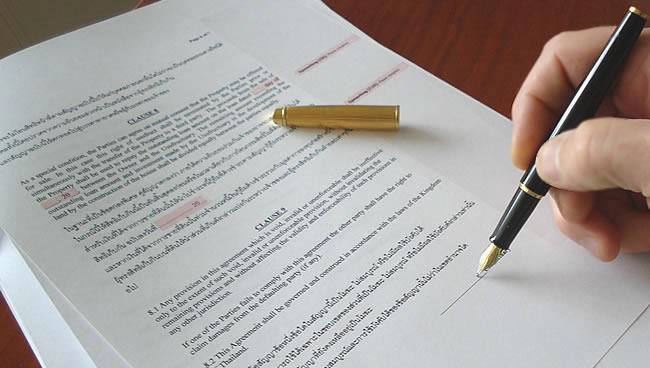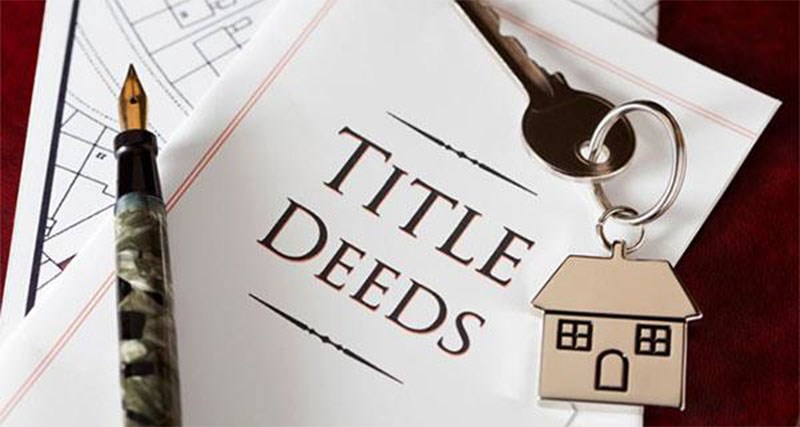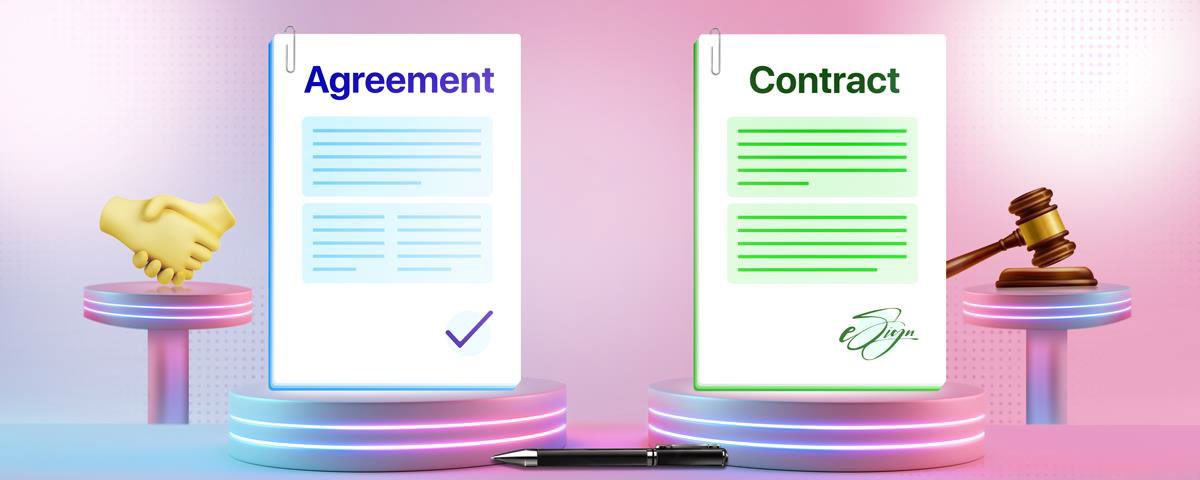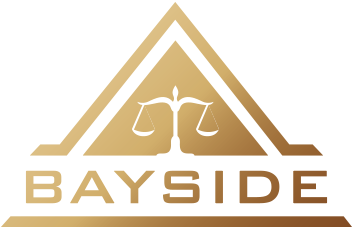Real Estate Law Services
Dr. Thammanun Hinkham
Dr. Of Laws ( LLD )
Ramkhamhaeng University
Why Hire a Real Estate Lawyer?
Anyone looking to buy, sell or lease a property in Thailand wonders whether or not to hire a real estate lawyer for assistance.

Since any real estate deal requires a substantial investment; usually people decide to avoid spending more on lawyer fees and try to save money or cut their costs. However, failing to hire a good lawyer to assist you in the selling and purchase of real estate property can end up costing you more money in the long run.
Having an experienced and qualified lawyer on your side can actually save you a lot of money. We at Bayside Property & Law Firm ensure that you get the best law services of all times for the investments you make in Thailand. Our Lawyers provide the following services that can ease the process of real estate deals for our clients:
- Drafting of necessary contracts & agreements.
- Reviewing of property documents.
- Property Title search.
- Property due diligences.
- Transfers of title.
- Consultancy & Services related to:
- Thai land law (Superficies).
- Thai Usufruct law.
- Thai Tenancy law.
- Inheritance law.
- Property Tax Law.
- Various Contracts & Agreements.
Drafting of necessary contracts & agreements
There are various documents and formalities involved when someone either buys or sells or leases any type of a real estate in Thailand. Foreign investors usually face a lot of difficulties with the documentation process as most of the documents are drafted in Thai language. An experienced lawyer must be hired in such scenarios either to review or to draft the necessary documents with all the required statutory needs.

Reviewing of Property Documents:
The standard contracts in Thailand may oftentimes not give an expounded detail of the buyer's and seller's rights and obligations. To anticipate any possible errors or issues on the legalities and completeness of a contract, foreign investors can greatly benefit from getting a Contract Review by a property lawyer in Thailand.

Property Title Search:
Real estate investments involve a large amount of capital and every investor would want to ensure that every bit of their money goes to the right place. People who are not new in making property investments understand the importance of doing Title Search. There have been numerous land reform initiatives in Thailand over the past years, and employing this service before making any property purchase will help eliminate fraudulent and unlawful real estate transactions in the industry.

Due Diligence:
This service is employed basically to further give grounds for the eligibility of both the property and the sellers the investors are dealing with. Due Diligence aims to acquire more information about the piece of property through physical inspection on the land, inspection of building permits and local courts record review of the seller or developer.

The report will include:
- A title search.
- Scanned copy of title deeds, building permits and other related documents concerning the property.
- Photographs of the land.
- Information about owners of adjacent land.
- Clarity about property boundaries, legal access rights, encumbrances, etc.
- Research into the sellers / developers of the real estate property.
Title Transfer:
While it is important to pay attention to the preliminary process involved in real estate purchases, the transfer of property title requires more careful heed and understanding. This is to administer awareness of all the fees to be paid at the Land Department, aside from the base purchase price of the property, which include different taxes and transfer fees. In some instances where the buyer of the real estate is unable to attend the Land Office when affecting the transfer of title, the real estate lawyer may represent the buyer and take care of the real estate transactions at the Land Office in Thailand through a power of attorney.

Other Consultancy & Services:
In addition to the above mentioned core law services related to real estate; there is still more one needs when they involve into a real estate deal. Lawyers at Bayside Property & Law Firm are a step ahead and also act as consultants as and when required by the client. The additional services or consultancies our experts provide you are:
Thai Land Law (Superficies).
Right of superficies (sections 1410 to 1416 Civil and Commercial Code) in Thailand is a civil law real estate right. In France it is called 'droit de superficie', in Germany it is called 'Erbbaurecht' and in the Netherlands it is called 'recht van opstal'. The effect of the right of superficies in these countries is the same; it grants the superficiarius (meaning the person granted the right of superficies) the right to build and own buildings, structures or plantations upon land belonging to another person. The superficies agreement specifies the terms under which the right is granted, and by registration at the Land Department's provincial or local branch office it legally separates ownership of the land and everything on land. The right of superficies in Thailand is limited to a period of time of up to 30 years or for the life of the owner of the land or the life of the superficiarius. The person in the agreement granted the right of superficies obtains ownership over the building without obtaining or having ownership rights in the land. A superficies in Thailand will be allowed before construction or during the construction of a building, generally not for an existing building unless the building officially transferred and transfer taxes and fees have been paid.
-606628.jpg)
Thai Usufruct Law.
Usufruct is the right to use or occupy another person's real property for one's life or up to 30 years under sections 1417 1428 of the Civil and Commercial Code. The right of usufruct is not complete unless registered with the Thailand land department. Established and recorded in the official land registry of the local land office for a fixed term or for the life of the usufructuary, the usufruct exists as long as the usufructuary is alive. After his or her death the real estate property reverts back to the owner. A usufruct is often given to a family member such as a foreign spouse with the intention that a foreign spouse is protected in the event of death of the Thai spouse (registered owner). The usufruct gives the right to the foreign spouse to remain in the property upon the death of his or her Thai spouse.
Thai Tenancy Law.
When it comes to rent or lease of immovable property in Thailand foreigners have the same rights as Thai nationals. Lease of immovable property (land, house, condominium) for residential purpose is governed by Civil and Commercial Code (sections 537 to 571) and further specified by the Thailand Supreme Court. Foreigners are under Thai law allowed to lease real estate property for terms of up to 30 years. Whether it concerns a lease of an apartment or land and/ or house for residential purposes by foreigners there is no requirement of bringing foreign currency into Thailand, as opposed to buying a condo unit freehold or leasing commercial property under the 'Hire of Immovable Property for Commerce and Industry by Aliens Act'.
Legally a long term lease or leasehold agreement can under Thai law best be described as a prepaid tenancy contract. Lease is in the Thailand Civil and Commercial Code placed under the chapter 'specific contracts', meaning that it is not a real property right (asset) or true leasehold but a personal contract right primarily attached to the lessee. Lease in Thailand is not a fixed asset. A lease agreement in Thailand can be terminated premature (breach of lease contract), cannot be mortgaged, is under rent of property laws not automatically inheritable and the lessee only has a legal right to sub-let and assign the remaining period left on a lease when this is agreed in the lease agreement. Assignment of the lease agreement always requires cooperation and approval of the owner of the property and registration at the Land Department (which can only be done by the Thai owner).
Property Tax Law.
In a sale and purchase agreement of a new condominium unit or a land and house in an official government licensed housing development the law specifies that the developer may ONLY pass on up to half of the transfer fee to the buyer, all other tax and fees are by law the responsibility of the developer. In other situations (private sale, or private apartment or housing development) the parties are free to divide the transfer fees and taxes and it could vary from purchaser pays all to seller pays all depending on the agreement between the parties. The following conveyance taxes and transfer fees are involved with transfer of real estate in Thailand:
- Transfer Fee of 2%
- Specific Business Tax of 3.3% (if applicable)
- Stamp Duty of 0,5% (does not have to be paid when Specific Business Tax is charged)
- Withholding (Income) Tax calculated at a progressive rate for individuals and is fixed at 1% for corporations.
The above tax rates are the general tax rates that apply on the transfer of ownership of land, land and house, condominium or the transfer of a house separate from the land. The above taxes and fees are charged at the time of transfer of the property.
Various Contracts & Agreements:
We also draft and review the following important contracts & agreements for our clients:
- Lease Agreements
- Land & House Lease Agreements
- Home Rental Contracts.
- Office Rental Contracts. - Prenuptial Contracts
- Sale Contracts
- Condominium Sale & Purchase Contracts.
- Land Sale & Purchase Contracts.
- Land & House Purchase & Sale Agreements. - Last Will & Testaments
- Construction Contracts
- Loan Agreements



